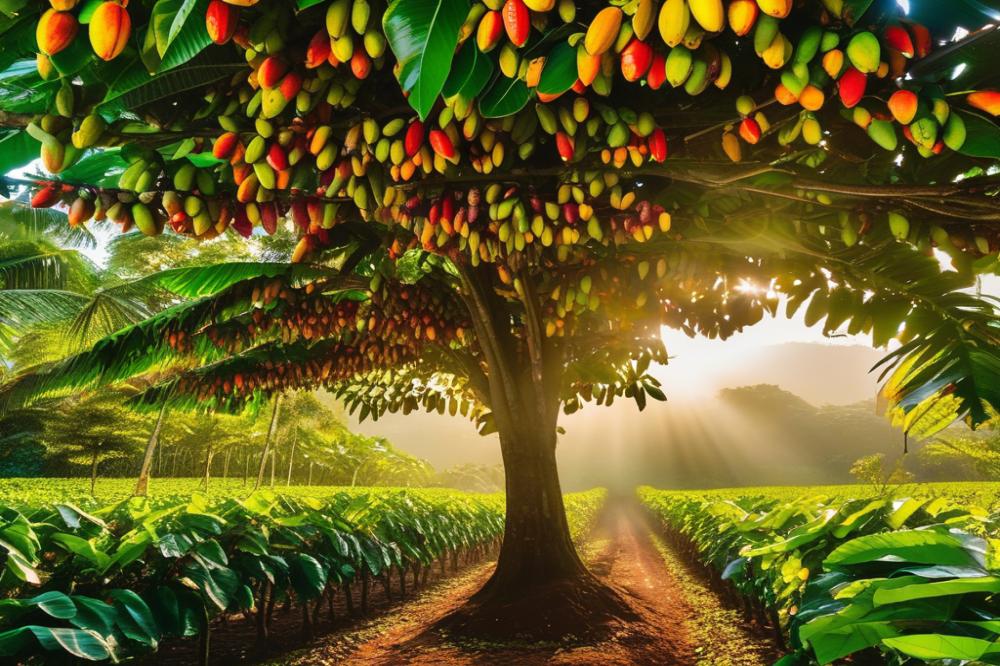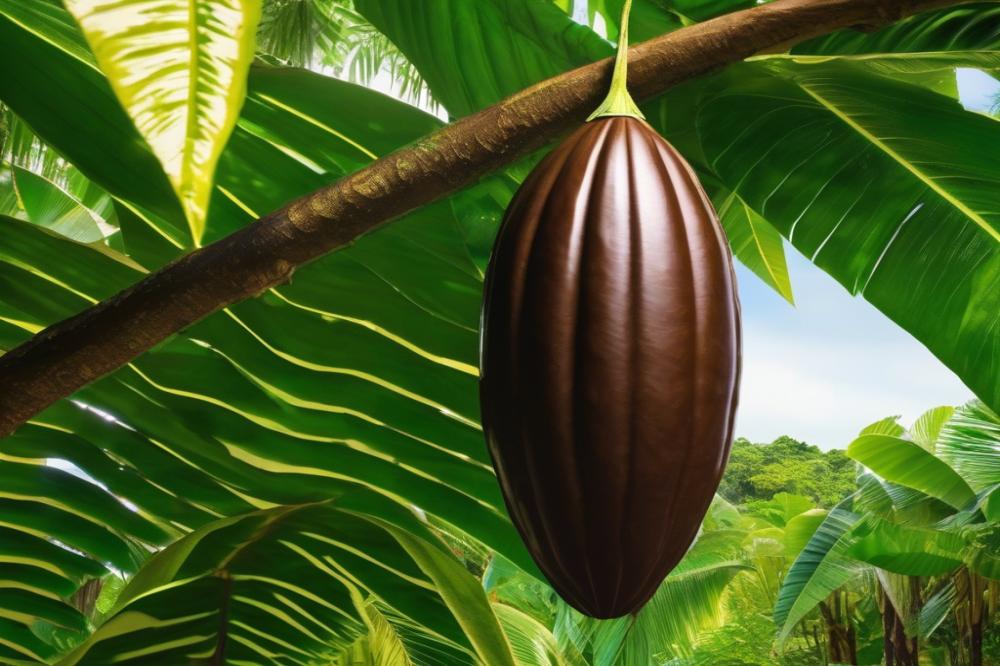Understanding chocolatebix.com/exploring-the-different-types-of-cocoa-beans”>Fair Trade Cocoa
chocolatebix.com/exploring-the-different-types-of-cocoa-beans”>Fair Trade Cocoa represents a powerful movement within the expansive cocoa and chocolate industry. Its significance cannot be overstated. This approach promotes better trading conditions for cocoa farmers, ensuring they receive fair wages for their hard work. It is not just about the chocolate we enjoy but about the lives behind it. Supporting cocoa farmers through ethical sourcing can fundamentally transform communities and uplift families.
Cocoa farmers often face numerous challenges, including fluctuating market prices and exploitative labor practices. Fair Trade practices address these concerns by guaranteeing farmers a minimum price for their crops. This structure provides stability in an uncertain global trade landscape. Empowerment arises when farmers can plan their futures, allowing for investments in education and health.
Furthermore, sustainable farming plays a crucial role in these practices. It promotes environmental awareness and responsible management of resources. When farmers utilize sustainable methods, the impact on our planet diminishes. Healthy ecosystems not only support the farmers’ livelihoods but also contribute to community development. This multifaceted approach encourages a positive feedback loop for social responsibility.
Ethical Practices go beyond just fair wages; they encompass respect for human rights and dignity. Supporting Fair Trade Cocoa means standing in solidarity with those who cultivate the crops we cherish. Every purchase has the power to reinforce this vital movement. It is essential to recognize how our choices influence the lives of farmers and their communities.
Understanding Fair Trade Cocoa
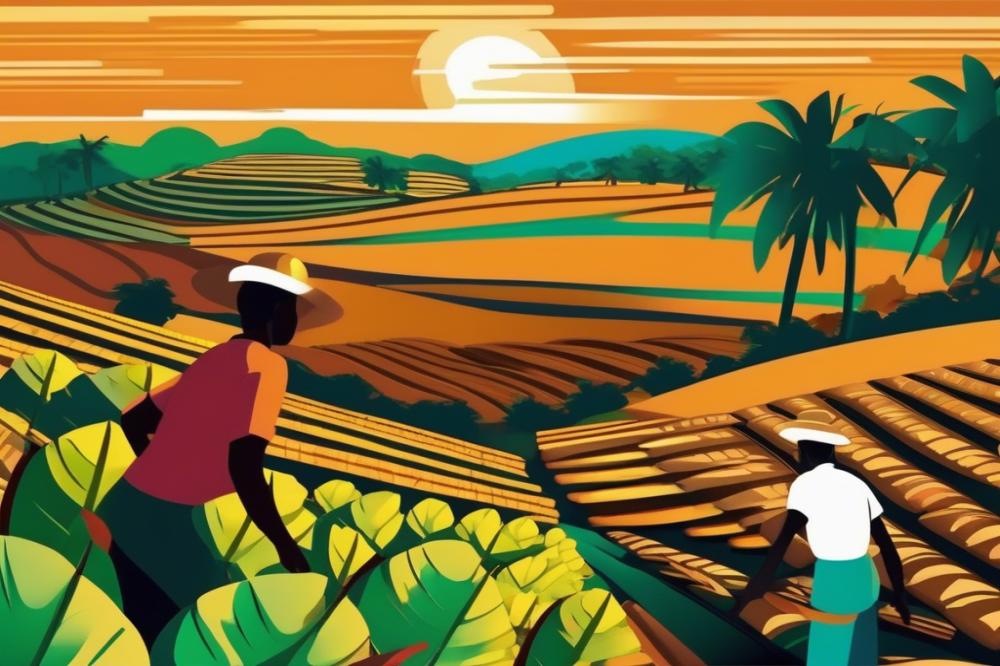
Fair Trade Cocoa represents a system that aims to create a more equitable market for farmers. This concept revolves around several core principles, including fair wages, sustainable farming practices, and community development. By focusing on ethical sourcing, the impact on global trade becomes clear. It shifts the balance towards justice for those at the beginning of the supply chain.
Farmers who grow cocoa often face tremendous challenges. Traditional practices may lead them to receive unfair compensation for their hard work. However, fair trade initiatives change that dynamic. Standards set by organizations working in this field promote fair wages for cocoa farmers, ensuring they can support their families and invest in their communities.
For many farmers, empowerment is a direct result of fair trade certification. They gain better access to markets and resources that were previously out of reach. This not only improves their financial situation but also fosters social responsibility within the cocoa industry. With fair trade, farmers can develop sustainable farming techniques that protect local ecosystems while producing high-quality cocoa.
The transition from conventional cocoa farming to fair trade practices illustrates a significant shift in mindset. As awareness of ethical sourcing grows, more consumers demand transparency in the products they purchase. This change encourages companies to take responsibility for their sourcing practices, ultimately benefitting everyone involved.
Environmental impact is also an important aspect of this movement. Fair trade promotes methods that protect the land, water, and biodiversity. By focusing on sustainable practices, farmers contribute to a healthier planet. This benefits not only their communities but all of us who enjoy chocolate. Thus, the ripple effects of choosing fair trade cocoa become evident in multiple areas, from economic stability to ecological health.
Sustainable Farming Practices
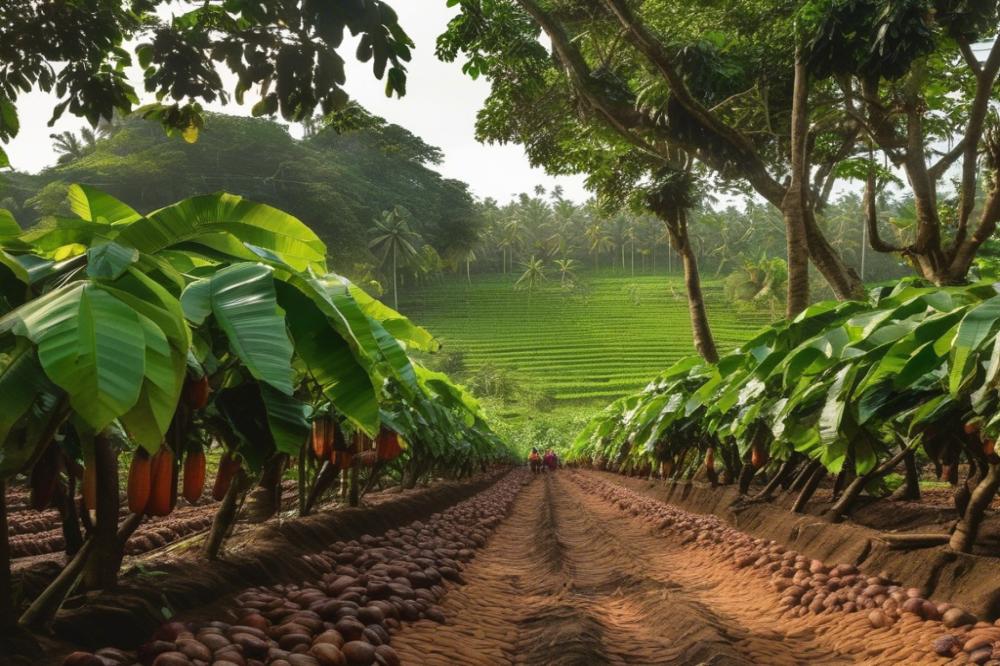
Sustainable farming practices play a crucial role in the production of Fair Trade Cocoa. These methods focus on creating an environmentally friendly approach that respects both the earth and its inhabitants. By using agroforestry techniques, cocoa farmers plant trees alongside their cocoa crops. This not only provides shade for the cocoa plants but also supports biodiversity in the ecosystem.
The environmental impact of cocoa production cannot be overlooked. Traditional farming often leads to deforestation, soil degradation, and water pollution. In contrast, sustainable methods promote the health of the land. They help maintain soil fertility and reduce the need for harmful chemicals. This shift benefits not just the farmers but the entire community, too. Healthy land leads to stronger crops and better yields.
Farmers benefit from fair wages through Fair Trade practices. This financial stability allows them to invest in their farms and communities. The empowerment of farmers plays a vital role in changing the dynamics of the chocolate industry. Education and training programs support farmers in adopting sustainable practices. When farmers thrive, communities flourish.
Many initiatives exist that promote sustainability within cocoa farming. Programs supported by Fair Trade advocate for organic farming, where farmers use natural fertilizers and compost. This practice keeps harmful chemicals out of the soil and water. Additionally, crop rotation is encouraged. It helps to restore nutrients to the soil and prevent pests from becoming a problem. These efforts contribute to ethical sourcing, meaning that consumers can enjoy their chocolate guilt-free.
Social responsibility guides these initiatives. Many organizations work with cocoa farmers to ensure they practice environmentally sustainable methods. These partnerships foster community development, creating a network of support and knowledge sharing. Together, they can face challenges like climate change and market fluctuations. The positive impacts resonate far beyond individual farms, promoting a healthier planet for future generations.
Empowerment and Community Development
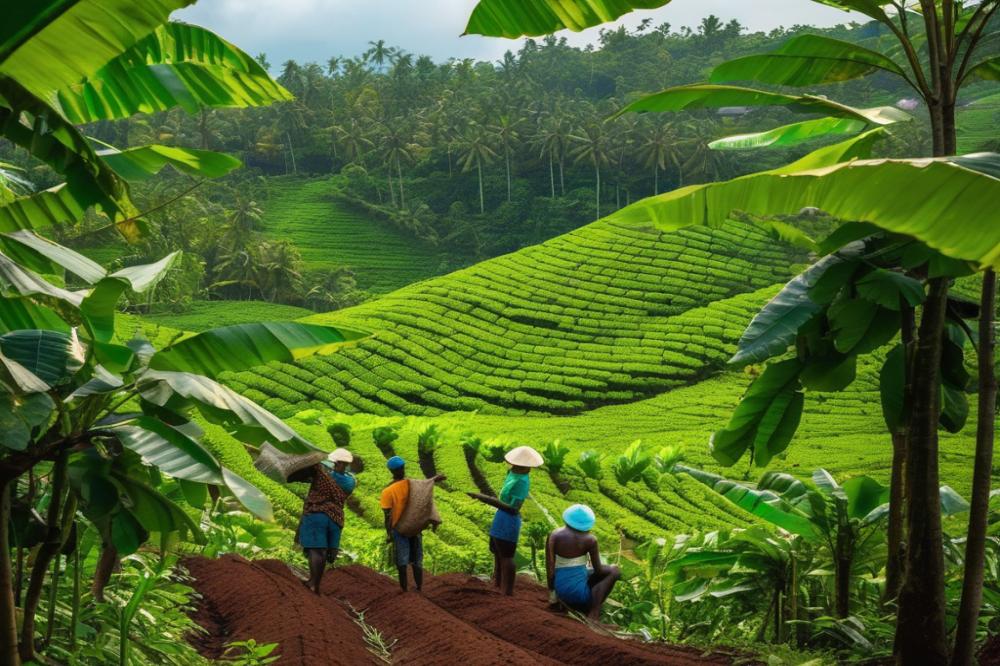
Fair Trade initiatives have become a beacon of hope for cocoa farmers. They provide a way for these hardworking individuals to gain more than just an income. Empowerment is at the heart of this movement. When farmers receive fair wages, they are better equipped to improve their lives. They can invest in their families, businesses, and communities.
Cocoa farmers are not just producers; they are essential members of their communities. Education plays a crucial role in community development. Fair Trade organizations often fund local schools and training programs. Access to education opens doors. It helps families break the cycle of poverty. Children can learn skills that lead to new opportunities.
There are inspiring stories of communities transformed through these efforts. In regions where Fair Trade practices are used, lives have changed dramatically. Farmers can now afford healthcare for their families. They build schools, pave roads, and support local businesses. This ripple effect fosters a sense of pride and ownership within the community.
Cooperatives serve as an important foundation for these changes. By banding together, farmers can negotiate better prices. They gain strength in numbers. This collective bargaining leads to improved livelihoods. More money in their pockets means more benefits for their families. Profits from ethical sourcing create opportunities that trickle down to the entire community.
The chocolate industry’s demand for ethically sourced cocoa highlights the importance of social responsibility. Consumers are increasingly aware of how their choices impact farmers. They want to support practices that are sustainable and beneficial for everyone involved. This shift encourages cocoa farmers to improve their methods and the environmental impact of their work.
Ultimately, Fair Trade empowers farmers and communities. The benefits extend far beyond individual families. They create a movement towards a more just and equitable global trade system. Through education, fair wages, and community support, a brighter future is on the horizon.
Challenges in Fair Trade Cocoa
Producers of fair trade cocoa face many challenges in today’s market. Competition with conventional cocoa is tough. Many buyers still prefer cheaper options, which puts pressure on fair trade farmers. Market fluctuations add uncertainty to their livelihoods. Prices can change quickly due to global trade shifts. Many farmers rely on cocoa sales to support their families and communities, making this instability particularly harmful.
The process of certification brings its own set of hurdles. Gaining fair trade certification requires meeting strict standards, which can be difficult for some cocoa farmers. This necessitates an understanding of sustainable farming practices. Additionally, maintaining those standards over time is resource-intensive. Farmers must constantly adapt to changes in regulations and requirements. It can feel overwhelming for many, particularly smaller producers with limited resources.
Consumer support plays a crucial role in overcoming these challenges. When people choose ethically sourced chocolate, they are voting for empowerment in cocoa-growing communities. By opting for fair trade products, shoppers actively contribute to community development and social responsibility. Continued awareness around the environmental impact of farming practices also helps. Ethical sourcing should become the norm, not just an option. Each purchase sends a message that fair wages and dignified working conditions matter.
Support from consumers is vital. Without strong demand for fair trade cocoa, farmers struggle to compete. This means that fair trade practices may risk fading away. Sustainable practices need committed buyers willing to pay a premium. Investing in fair trade benefits not only farmers but also the entire chocolate industry. It nurtures a future where communities can thrive, rather than just survive. Everybody has a role in this movement towards fairness and equity.
The Future of Fair Trade Cocoa
The chocolate industry is at a crossroads. Increasingly, consumers are demanding more transparency in how their favorite treats are produced. Many want to know where their cocoa comes from and the conditions under which it was grown. As a result, sustainable farming practices are becoming a key focus for companies looking to meet this demand.
Cocoa farmers are now getting more attention than ever. They have long lived with unstable incomes and poor working conditions. However, with the rise of Fair Trade principles, there is hope for better livelihoods. Fair wages can lead to empowerment for these farmers, allowing them to invest in their communities.
Global policies also shape the landscape of ethical sourcing. Governments and organizations are stepping up efforts to promote fair practices. This push can create stronger support systems for cocoa farming communities. Policies that encourage sustainable agriculture can reduce the environmental impact of cocoa production. Thus, a focus on social responsibility benefits everyone involved.
The chocolate industry faces challenges and opportunities. As awareness about ethical sourcing grows, many brand leaders are committing to positive change. Consumers are playing a significant role in this shift. When they choose products associated with Fair Trade, they show support for community development.
Trends indicate that more people are ready to consider the ethics behind their chocolate. Chocolatiers are responding by aligning their practices with these values. They recognize that the future of their industry may depend on responsible sourcing and integrity in their supply chains.
A vision for a sustainable and equitable chocolate industry is becoming clearer. Imagine a world where cocoa farmers thrive, and sustainable farming is the norm. The future can be bright, but it relies on the voices and choices of consumers. Together, they can help create a chocolate market that supports fair practices and promotes the welfare of all involved.
Wrapping Up: The Impact of Fair Trade Cocoa
Fair Trade initiatives bring numerous advantages for cocoa farmers and their communities. These programs help secure fair prices for their crops, which means more money in their pockets. With a stable income, families can afford essential needs like education and healthcare. Many farmers also gain access to better farming techniques through training, allowing them to practice sustainable farming. This contributes positively to the environment as well.
Consumer awareness plays a crucial role in this equation. When people understand the significance of their choices, it can drive change. Support for ethically-sourced cocoa creates a demand for honest practices. Every purchase sends a message, encouraging companies to prioritize fairness. Choosing Fair Trade products promotes a better livelihood for farmers and fosters healthier communities.
It’s time for us to take action. By supporting Fair Trade cocoa, individuals can take part in changing the cocoa industry for the better. Make informed choices when shopping, and advocate for brands that prioritize Ethical Practices. Together, we can uplift cocoa farmers and contribute to a more equitable world.

